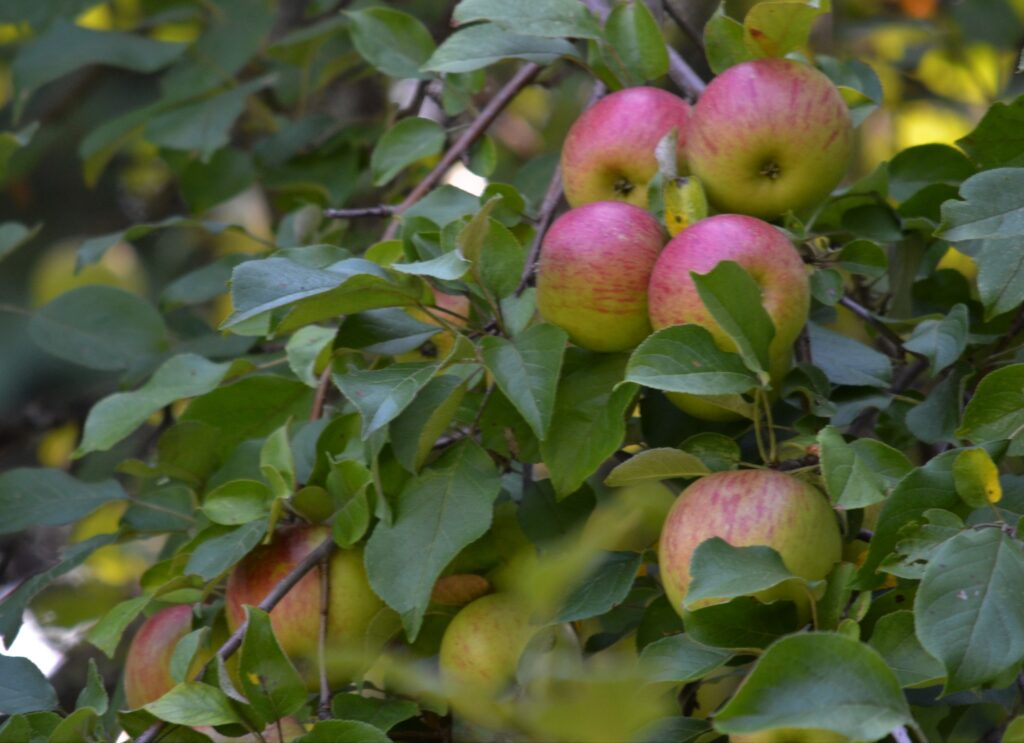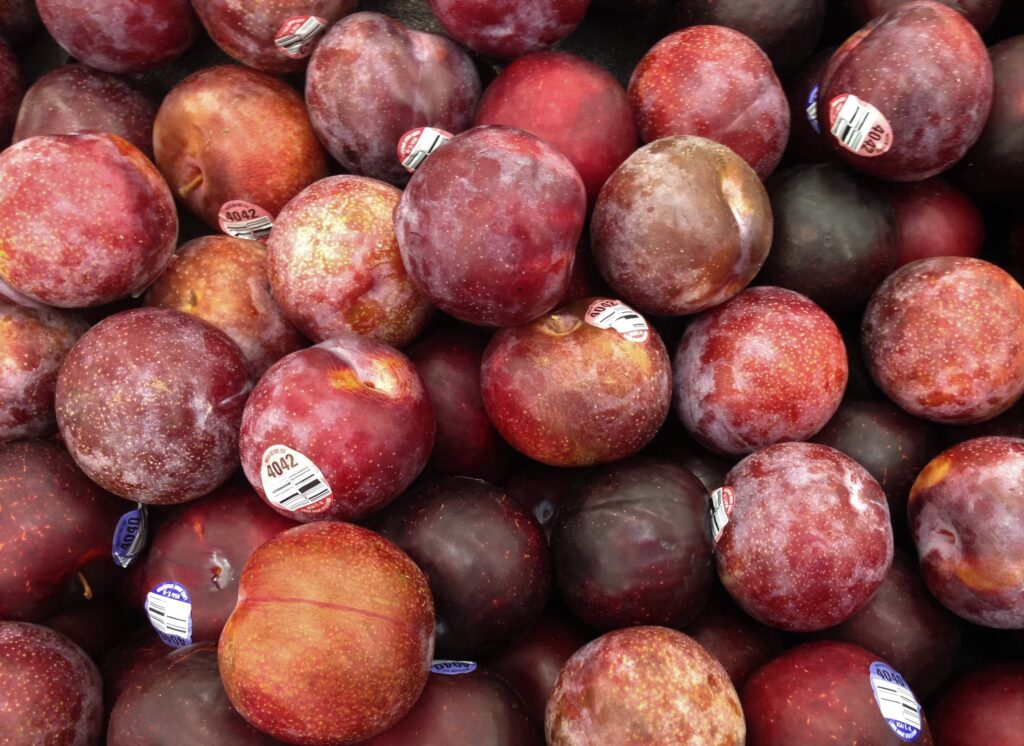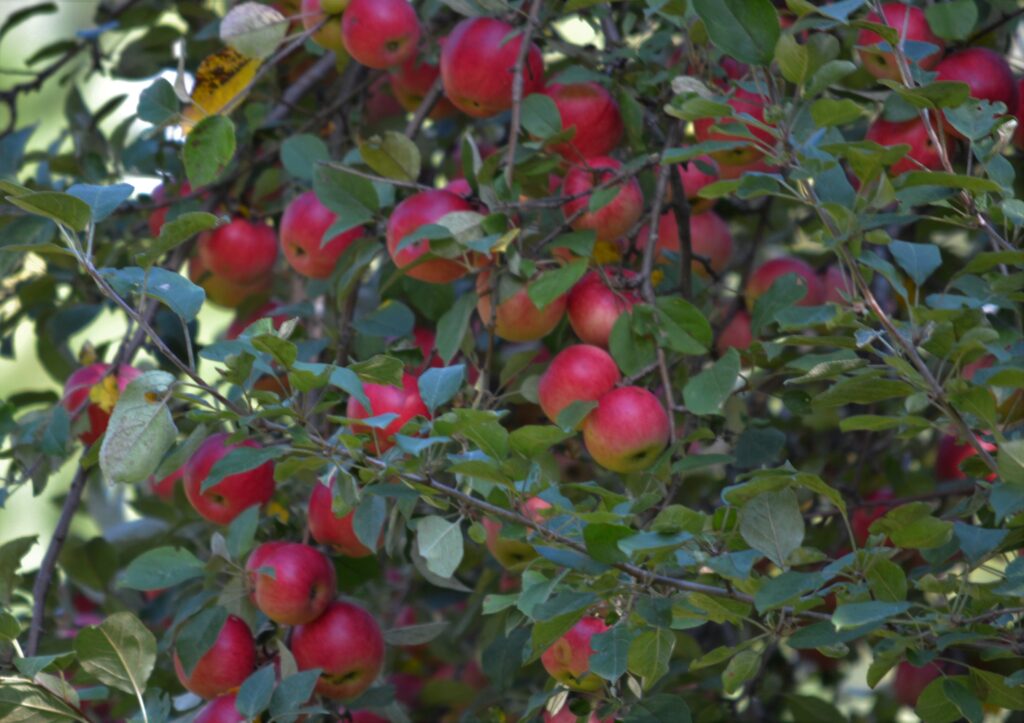Text and Photos by Henrylito D. Tacio
Although apples thrive in some temperate places in the Philippines, they don’t grow so well. But they are abundant in fruit stands and malls because these fruits can be imported from China, Japan, and even the United States.
Apple is one of the most popular fruits in the world. In fact, it has been associated in the book of Genesis as it is thought to be the forbidden fruit of Eden. Christian tradition has it that it was an apple that Eve offered to Adam to eat if he really loved her.
It was also the same fruit – but golden one – that Eris, the Greek goddess of discord, that was tossed during the wedding party. Inscribed in the golden apple was these words: “For the most beautiful one.” Three goddesses claimed the apple: Hera, Athena, and Aphrodite.
To settle the dispute, Paris of Troy was appointed to select the recipient. Both Hera and Athena bribed Paris, but it was Aphrodite who won after she tempted the warrior to give her the most beautiful woman in the world. Paris failed to know that the woman was already married; thus, the Trojan War happened.
So much for that. Wise men say an apple a day keeps the doctor away. Nutrition experts claim one large apple has around 130 calories, and none come from fat. Apples also have no sodium or cholesterol – nutrients many want to expressly avoid.

But that’s going ahead of this feature.
What’s in an apple? According to Medical News Today’s Yvette Brazier, a medium-sized raw apple (weighing around 182 grams) has the following: carbohydrates (25.1 grams, including 18.9 grams of sugar), fiber (4.4 grams), calcium (10.9 milligrams), phosphorus (20 milligrams), magnesium (9.1 milligrams), potassium (195 milligrams), vitamin C (8.37 milligrams), folate (5.46 micrograms), beta-carotene (49.1 micrograms), lutein and zeaxanthin (52.8 micrograms), and vitamin K (4 micrograms).
Apples also provide choline, iron, vitamin A, some B vitamins, and vitamin E. In addition, they are also good sources of antioxidants, substances that help neutralize free radicals.
“Free radicals are reactive molecules that can build up as a result of natural processes and environmental pressures,” Brazier explained. “If too many free radicals accumulate in the body, they can cause oxidative stress, and this can lead to cell damage. This damage can contribute to a range of conditions, including cancer and diabetes.”
Specifically, apples are rich in quercetin and pectin, both of which are credited for supplying apples with their health benefits. “Quercetin is a flavonoid, a type of naturally occurring plant chemical that has antioxidant and anti-inflammatory effects,” states the Harvard T.H. Chan School of Public Health.
“Pectin is a type of soluble fiber that may help prevent constipation and have a modest effect on lowering LDL (low density lipoprotein), the ‘bad’ cholesterol,” it adds. “Pectin is also fermented by beneficial bacteria in the colon, which produces short chain fatty acids that may play a role in the prevention of chronic diseases, including certain cancers and bowel disorders.”
Stroke is the number cause of disability in the Philippines, according to the Stroke Society of the Philippines. In her article, Brazier cited a study that looked at how consuming apples over 28 years affected the risk of stroke in 9,208 patients.

Those who ate the most apples had been found to have a lower risk of thrombotic stroke. “Apple contains many nutrients that may lower the risk of stroke,” Brazier wrote. “One 2017 review found, for example, that people who consume the most fiber appear to have a lower risk of cardiovascular disease, coronary heart disease, and stroke.”
Apples are good for the heart as it contains fiber, vitamin C, antioxidants and potassium. Fiber, for one, helps manage blood pressure, thus reducing the risk of cardiovascular disease. Potassium, on the other hand, relaxes the blood vessels, which in turn reduces the risk of hypertension and cardiovascular complications.
“Vitamin C is an antioxidant that, alongside other antioxidants, may play a role in protecting some aspect of heart health,” Brazier noted. “Vitamin C may also boost the immune system and help defend the body from infections and diseases.”
Diabetes is another disease that is common among Filipinos. An estimated 7.3 million people have diabetes, with 3.5 million of them diagnosed and the remaining ones undiagnosed.
It’s high time for these people with diabetes to include apples in their diet. “In 2013, a population study found that people who replaced three servings per week of fruit juice with the same amount of whole fruit, including apples, had a 7% lower risk of developing type 2 diabetes than those who did not eat fruit,” Brazier wrote.
In addition, those who consume the most fiber have a lower risk of developing type 2 diabetes, according to one 2011 review. People who already have diabetes and follow a high fiber diet, Brazier reported, may also have lower blood sugar levels.
If you want to lose weight, why don’t you eat apples? “The fibers in apples can slow digestion, helping one to feel greater satisfaction after eating,” reports the Harvard T.H. Chan School of Public Health.

After following three large prospective cohorts of 133,468 men and women for 24 years, researchers found that higher intakes of fiber-rich fruits with a low glycemic load, particularly apples and pears, were associated with the least amount of weight gain over time.
“Eating low glycemic load foods tends to produce fewer and smaller spikes in blood sugar, which may lessen hunger later on and prevent overeating,” the Harvard T.H. Chan School of Public Health reports.
People with asthma can also benefit from eating apples. In the Philippines, one out of 10 people has asthma, a chronic respiratory disease. “Antioxidant-rich apples may help protect your lungs from oxidative damage,” writes Kerri-Ann Jennings for Health Line.
A large study in more than 68,000 women found that those who ate the most apples had a lower risk of asthma. Eating about 15% of a large apple per day was linked to a 10% lower risk of this condition.
“Apple skin contains the flavonoid quercetin, which can help regulate the immune system and reduce inflammation,” Jennings explains. “These are two ways in which it may affect asthma and allergic reactions.”
Do not peel an apple when you eat it. Never go for dried apples either. “Fresh, whole apples offer the most nutrients,” the Harvard T.H. Chan School of Public Health states. “Discarding the skin removes much of the fiber and the majority of flavonoids. Dehydrating or drying the apples removes vitamin C, which is predominantly in the flesh. In addition, sugar (along with extra calories) is often added to dried apples.”
Apples are also good for the brains. Most of the above studies mentioned peels and flesh. Unknown to many, apple juices have benefits for age-related mental decline. “Apple juice may help preserve acetylcholine, a neurotransmitter that can decline with age,” Jennings writes. “Low levels of acetylcholine are linked to Alzheimer’s disease.”
Now, a word of warning about eating apples all day. They are not good for your teeth. “Apples are acidic, and the juice may damage tooth enamel,” warns Tim Sharp, LiveScience reference editor. He cited a study published in 2011 in the Journal of Dentistry, which showed that “eating apples could be up to four times more damaging to teeth than carbonated drinks.”
Don’t give up eating apples yet. “It is not only about what we eat, but how we eat it,” explained lead researcher, David Bartlett, head of prosthodontics at the Dental Institute at King’s College in London.
Many people eat apples slowly, which increases the likelihood that acids will damage tooth enamel. “Snacking on acidic foods throughout the day is the most damaging, while eating them at meal times is much safer,” Bartlett said in a statement. “An apple a day is good, but taking all day to eat the apple can damage.”

